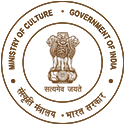Constructive Programme: Its Meaning and Place
Mahatma Gandhi symbolized the eternal soul of India. Through the “Constructive Programme” he set an agenda for a revolution in India and subsequently for the entire mankind. Through this programme he presented a fairly comprehensive vision of the kind of society he had in his mind. It was the blueprint for inner change in the individual, which would subsequently bring about social change. It was a process in which individual change and social change run parallel to each other, a simultaneous process and not independent of each other. Through the ‘Constructive Programme’ Gandhiji was preparing the masses for the post-independence India. The seed of this vision was sown early in his life when he came in contact with the views of John Ruskin, through the book ‘Unto this Last’. To actualise this ideal into practice requires the reconstruction of the entire social order. A society based on non-violence cannot nurture any other ideal. Social change must be evolutionary and not violent or disruptive. Social institutions are “the visible expression of moral values that mold the minds of individuals.” Mahatma Gandhi knew that his ideas and ideals are difficult to follow because of their inherent simplicity and rightly said, “It has been my misfortune or good fortune to take the world by surprise. New experiments or old experiments in new style must sometimes engender misunderstanding”.
The Constructive Programme may otherwise and more fittingly be called construction of “poorna swaraj” or complete independence by truthful and non-violent means. Believe me that swaraj will be delayed in proportion to our failure and half-heartedness in carrying out the different items of the Constructive Programme. It is impossible to attain swaraj non-violently unless there is self-purification. This requires faith in the following items:
- Communal unity
- Removal of untouchability
- Prohibition
- Khadi
- Other village industries
- Village sanitation
- Basic education
- Adult education
- Emancipation of women
- Education in health & hygiene
- Provincial languages
- National languages
- Economic Equality
- Peasants
- Labour
- Tribals
- Leprosy patients
- Students












